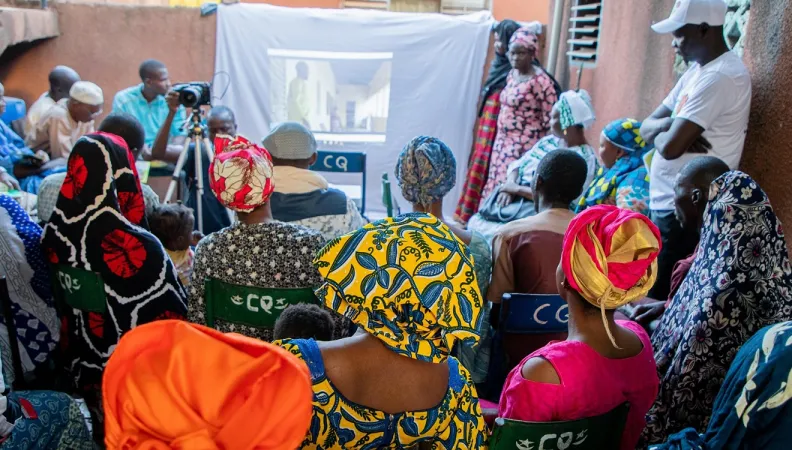Share the page
The Meriem Project: Driving Business Innovation in the Fight Against Malnutrition in the Sahel
Published on

With its “Shared Innovation” series, AFD highlights novel programs created or developed in our partner countries. In Burkina Faso, Mali and Niger, seven local food producers receive support from Agence Française de Développement in an effort to better meet demand, and reduce malnutrition.
Further Reading: Our Series on Shared Innovation
In Niger, Mali and Burkina Faso, at least one-third of children are suffering from chronic malnutrition. One-half of all women suffer from anemia. The mother’s health during pregnancy and nutrition for young children during the first two years of life can be decisive factor in their development. Infants are vulnerable to malnutrition during these periods, with the risk of developing irreversible damage in later life, such as mental disabilities, frail health or stunted growth.
Hence the importance of food security, an issue addressed by the Meriem program, which is supported by AFD and the Bill & Melinda Gates Foundation. Applied experimentally in Burkina Faso since 2018 then extended to Mali and Niger, the program assists local businesses develop innovative approaches to marketing and consolidating related sectors.
Fortified and prepared foods with appropriate vitamins and minerals enable future mothers to improve their nutrition during pregnancy and meet the needs of babies and young children. Affordable and quick to prepare, such foods are an alternative to industrial foods of poor nutritional quality.
Finding new formulas
And yet consumers have a hard time obtaining them. In Mali, Burkina Faso and Niger, businesses still offer too few original and natural products. Production and distribution problems limit supply. In Burkina Faso, seven Sahelian businesses specialized in food production have received support under the Meriem program. An investigation into people’s and purchasing power, was followed by a research and development stage to find new formulas. “Seven new products were created in this way. Today we are in the final test phase with future consumers before putting them on the market,” said Nicolas Le Guen, head of the project at AFD’s Health and Social Protection Department.
Awareness-raising campaigns
The Meriem program will test new marketing strategies on a large scale with players in distribution and innovative local networks, and a public institutional support component for implementing awareness campaigns with the public in Mali, Burkina Faso and Niger. Posters, videos and publications on social media have been disseminated by the Health Ministries in charge of these innovative campaigns designed to promote best practices in nutrition, hygiene and care.
“The program will also be used to assess the innovations tested and to share them with national and international stakeholders in nutrition, development and business,” says Nicolas Le Guen. “It contributes to research and should help gain the stakeholders’ acceptance of the role that the private sector can play in the fight against malnutrition.”
The challenge is to reconcile the goal of reducing malnutrition with large-scale economic profitability. Many international experts are working on this, from the NGO GRET, Hystra, ICI, IRAM, IRD, Ogilvy and Thinkplace.
The Meriem program is financed by grants amounting to €10 million euros from AFD and $5 million dollars (€4.18 million) from the Bill & Melinda Gates Foundation. It is scheduled to continue until June 2022.
